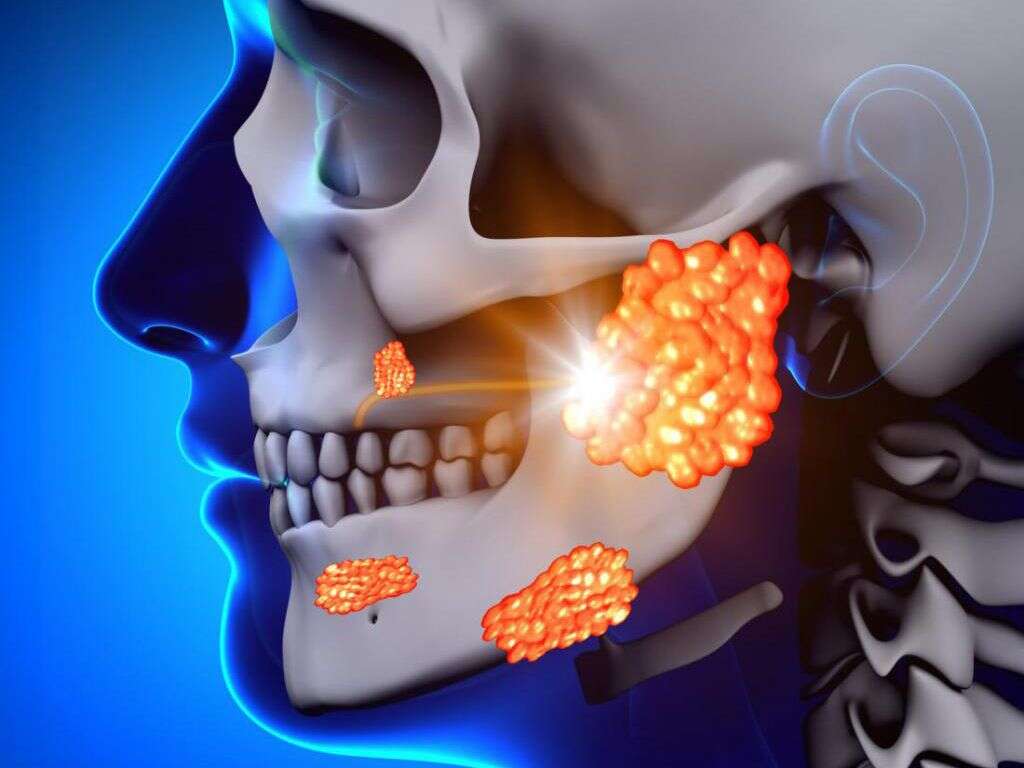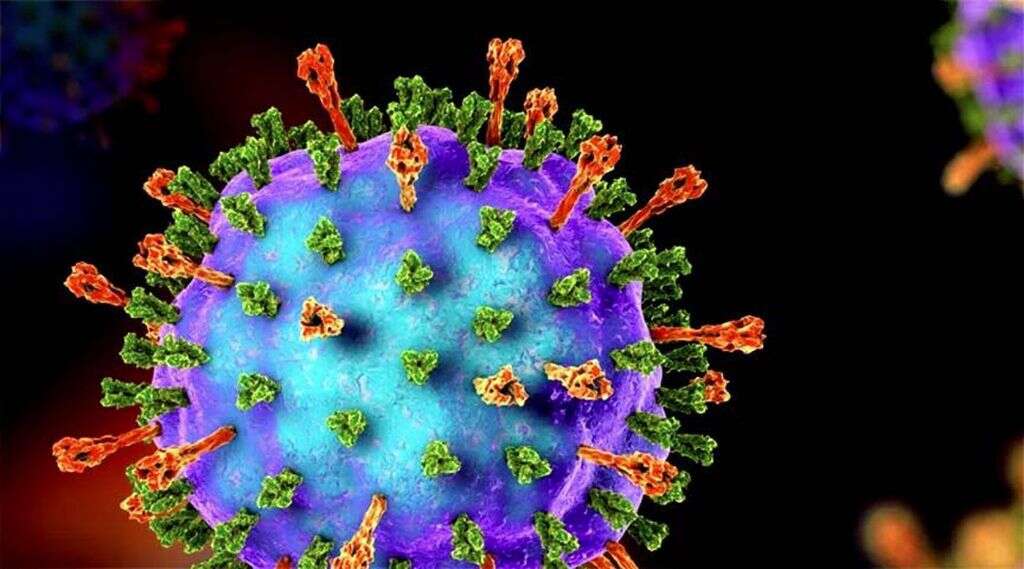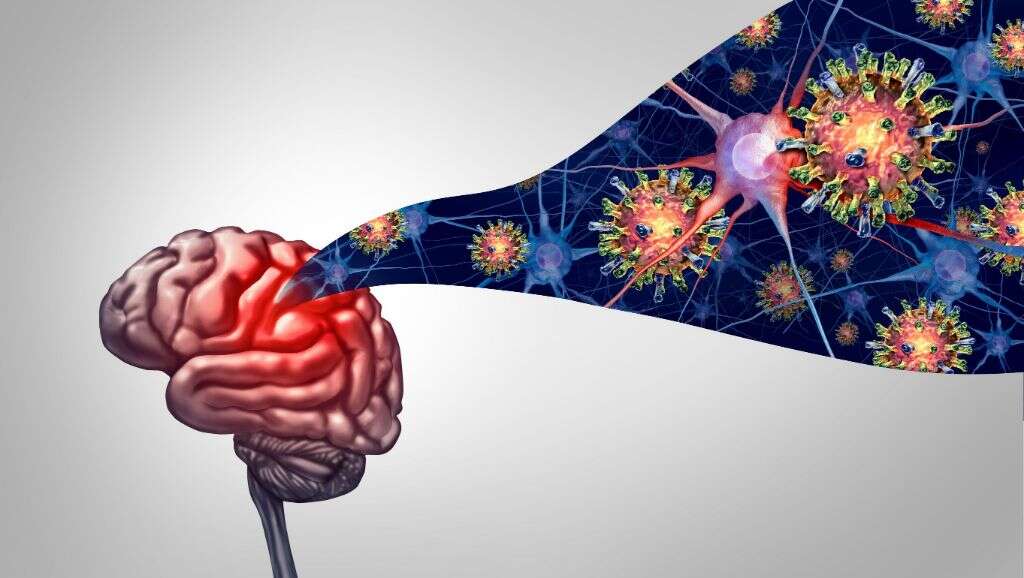What Is the Mumps Virus?
Saliva is a useful substance for us. It is one of the first processed involved in digesting our food, and it also helps us to taste. Saliva also helps to maintain oral hygiene due it its mildly antiseptic properties. It is produced by our own bodies and then released into our mouths as and when it is needed.
Mumps is a disease that is known for causing the saliva glands to become swollen. It is often easily recognized because of the way it will cause the patient’s cheeks to swell up. It is not usually a dangerous condition, even though it can be uncomfortable. It can be a lot more serious in a very small number of cases, however.

1. Mumps
Mumps is one of those diseases that you have probably heard about but not encountered yourself – depending on how old you are. This is because it used to be a very common disease but is now much rarer, and this is thanks mostly to the development of a vaccine. The virus responsible is still extant, however, and outbreaks of mumps do happen occasionally.
Cases of mumps have increased in recent years thanks mostly to people choosing not to have their children vaccinated. It is thankfully only mild in most cases, but it does have the potential to be very serious.

2. Causes
Mumps is an infection that is caused by a type of virus, and it is spread relatively easily to people that are not immune. It is typically spread when an infected person coughs or sneezes. This can then cause tiny droplets of fluids that are contaminated with the virus to be spread in the vicinity.
Some people will inhale or ingest these droplets directly. At other times, the droplets will land on surfaces, and these surfaces may be touched by another person later on. Some people will also contract the disease after sharing cutlery, food, or drinking vessels with other people.

3. Symptoms
In most cases, it will take around 2 to 3 weeks from being infected before the symptoms of mumps will show. Many people will not even develop any symptoms at all and, when symptoms do show, they are likely to be only mild. Perhaps the most characteristic symptom of mumps is that the patient’s salivary glands will swell, causing the cheeks to swell also.
The swollen salivary glands can be painful, and the patient can also experience pain when swallowing and chewing. A headache is another common symptom, as is a fever, and a loss of appetite. The patient can also feel fatigued, and they might also find that their muscles are aching.

4. Pancreatitis
In addition to the symptoms already mentioned, the mumps virus can lead to complications. Some of these complications can be serious. If the virus reaches the pancreas, for example, then the pancreas can become inflamed. This is a condition that is known as pancreatitis.
Symptoms of pancreatitis include an intense pain in the abdomen area. It can also cause nausea and vomiting.
Pancreatitis itself can develop into severe complications including acute pancreatitis. This can cause a fast heartbeat, indigestion, and a high fever. It can also lead to diabetes, kidney failure, and breathing difficulties. Severe cases can be fatal so it must be treated as soon as a problem is recognized.

5. Orchitis
Orchitis is a condition where the patient’s testicles have become swollen. It can happen in only one testicle, while it will happen in both in some cases. It also only happens in males that have already reached puberty. It is a condition that can be very painful to endure.
While the condition can be very painful, it will not usually result in any permanent damage. In a small number of cases, however, it can result in the patient becoming sterile. Thus, it is a condition that should be treated as soon as possible, especially in young men that might wish to father children at some point in the future.

6. Encephalitis
If the virus is able to infect the brain then it can result in the brain becoming swollen. This is a condition known as encephalitis, and it can result in a number of neurological conditions. It is also an extremely dangerous condition that will be fatal in some cases.
Another way that mumps can affect the nervous system is through meningitis. This is a condition where the membrane protecting the brain and spinal core has become inflamed, causing several very unwelcome conditions. As with encephalitis, meningitis is a condition that can be fatal so it should be treated as a medical emergency.

7. Heart Problems
Having a healthy heart is very important for so many reasons. It is not just that we need a healthy heart to keep us alive, but a healthy heart will also help to ensure we get to lead a good quality of life. We don’t usually begin to develop problems with our hearts until we get older, but it can happen in later life as well.
Severe cases of mumps can lead to the heart becoming infected, and this can affect its ability to function properly. This can have an impact on the patient’s overall quality of life, and can also lengthen their lives.

8. Miscarriage
As amazing as the time leading up to a new member of the family arriving can be, it is also a time that can be full of concern. Developing babies are at a time of their lives when the slightest of thing can cause considerable problems. If the mother has an illness, then it has the potential to be very dangerous for the baby.
Some cases of mumps can be severe enough to pose a very real threat to the baby’s life and, in some cases, it may even lead to a miscarriage. Pregnant women should speak with a doctor straight away if they suspect they have mumps, especially those early in on their pregnancy.

9. Deafness
Our ability to hear is thanks to some very specialized organs that help to detect soundwaves passing through the air. The organs that receive these airwaves then send the information to the brain, which then translates it into what we experience as sound. Humans don’t have the best hearing of the animal kingdom, but it is still effective at giving us what we need.
Such is the delicacy of our hearing organs that they can be damaged by an infection if it was serious enough. One example of this is mumps, and it can cause hearing loss in the more severe cases. In some cases, it will even cause the patient to lose their hearing permanently, although this is very rare.

10. Treatment
As yet, there is no known cure for mumps, although the vaccine is able to prevent it from happening in the first place. This is not usually a problem, however, because the immune system will usually be able to deal with the virus itself. The patient is usually recommended to simply rest as much as possible and to make sure they remain hydrated.
Painkillers/anti-inflammatories may be prescribed in some cases to help relieve the patient of their pain and other symptoms. The patient should also try and remain isolated to help prevent giving the virus to other people. If the symptoms do appear to be worse than usual, then a doctor should be called as soon as possible.











